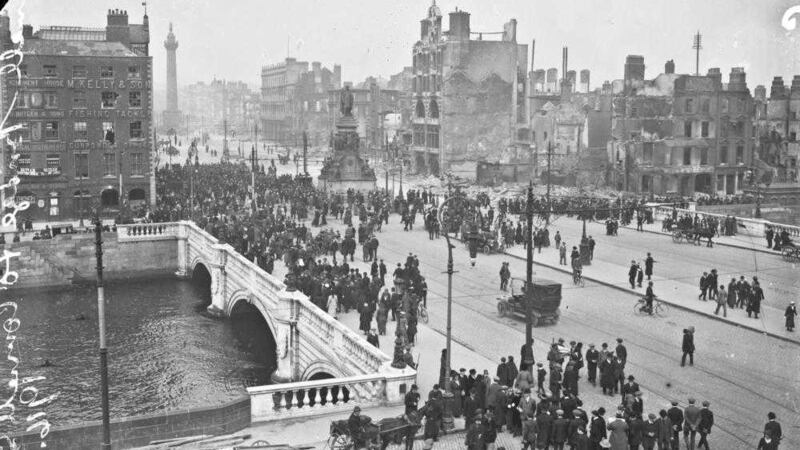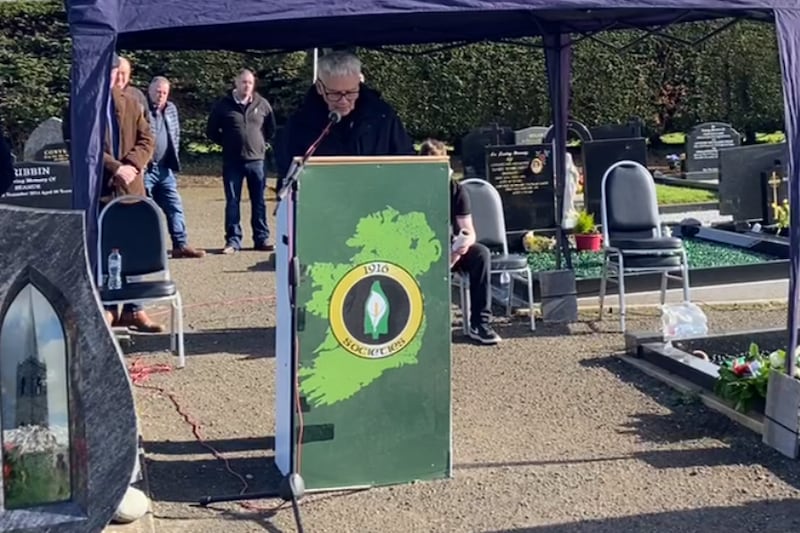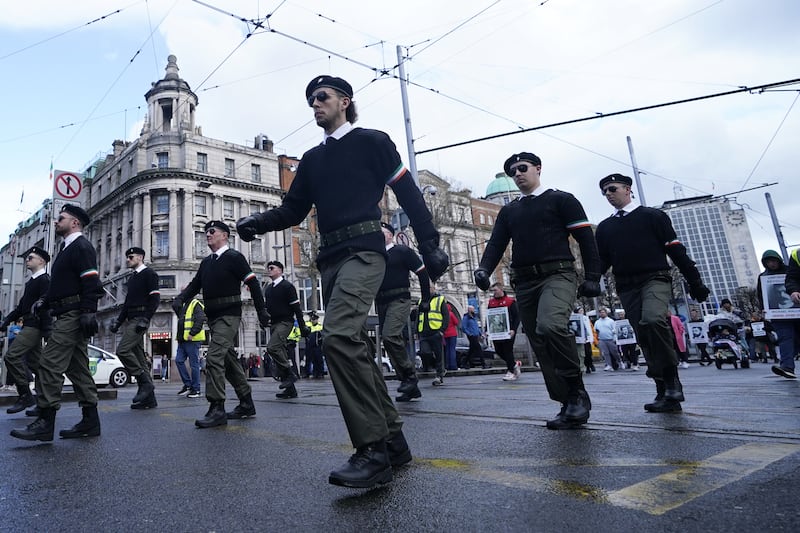The New York Evening Mail commented: "From a legal point of view the penalty of death inflicted on the leaders of the Dublin revolt is justified.
"The successful rebel is a hero to succeeding generations. The unsuccessful rebel is a traitor and, according to the laws of all countries, his life is forfeit.
"Yet the feeling will be general that the British government has blundered once again in its handling of a phase of the Irish question.
"Prevailing Irish opinion has apparently condemned the mad outbreak and its leaders.
"Now, the end that has come to them after the rising failed is likely to elevate them in Irish thought."
The New York Times comments: "Sir Edward Carson, recently a member of the British Cabinet, is he who two years ago armed the people of Ulster to declare war on England if she persisted in the attempt to thrust Home Rule upon Ireland.
"His position was that he and his followers were obliged to commit treason against England in order to remain loyal to her!"
From Canada the Ottawa Evening Journal comments: "If the mass of the Irish people were in any real doubt as to whether John Redmond and his colleagues were the wisest or safest leaders, the immediate ludicrous collapse of the attempt Rebellion would afford conclusive guidance.
"For crazy folly, nothing could surpass the Sinn Fein outbreak. Launched with an armament which seems to have consisted almost entirely of a pompous proclamation, the riot proved just powerful enough to capture a park and the Post Office and hold them for three or four days…"
The New York Evening Globe remarks: "Sir Edward Carson drilled a force in the North of Ireland whose declared purpose it was to resist the mandate of the British Parliament, yet Carson subsequently became a member of the Cabinet.
"If his offences could be overlooked, it should be possible to overlook in large degree the offences of the foolish Sinn Feiners who thought they were privileged to imitate an example so distinguished.
"The good men of Ireland and England have never had greater reason for forbearance than now…"
(What is surprising about the reaction of the US press to the Rising is the widespread criticism of the British government’s decision to execute the leaders, thus creating martyrs.
Redmond retained his iconic status for now but within months the US Ambassador could inform London that anti-British feeling was growing rapidly. Support for the Irish Republican cause was, he wrote to the Prime Minister, Asquith, ‘like fizz in a soda bottle’.)






